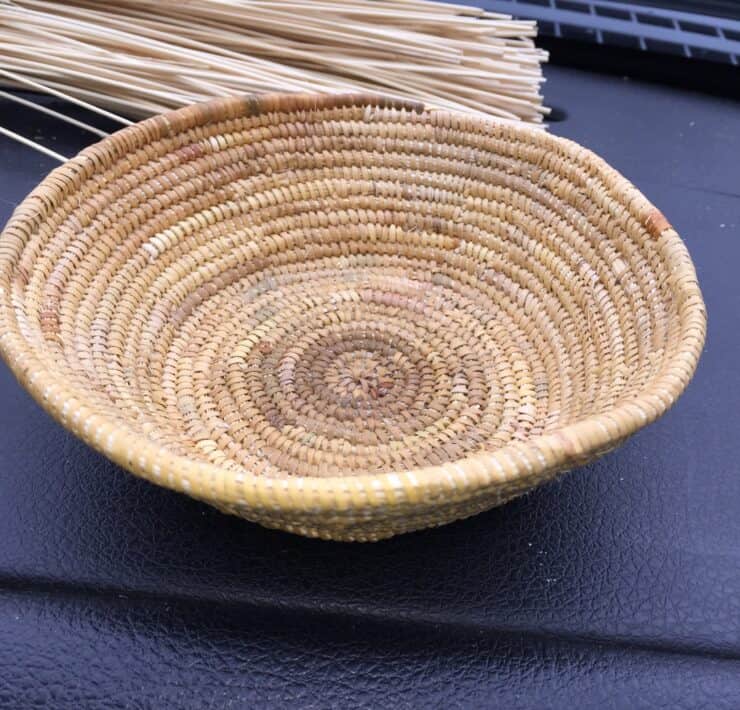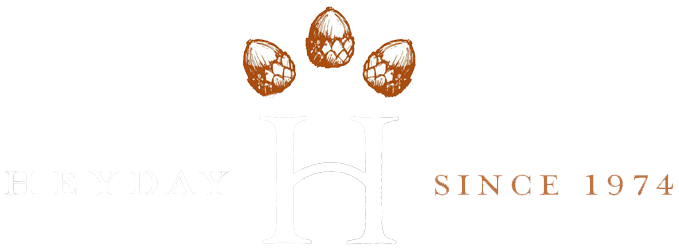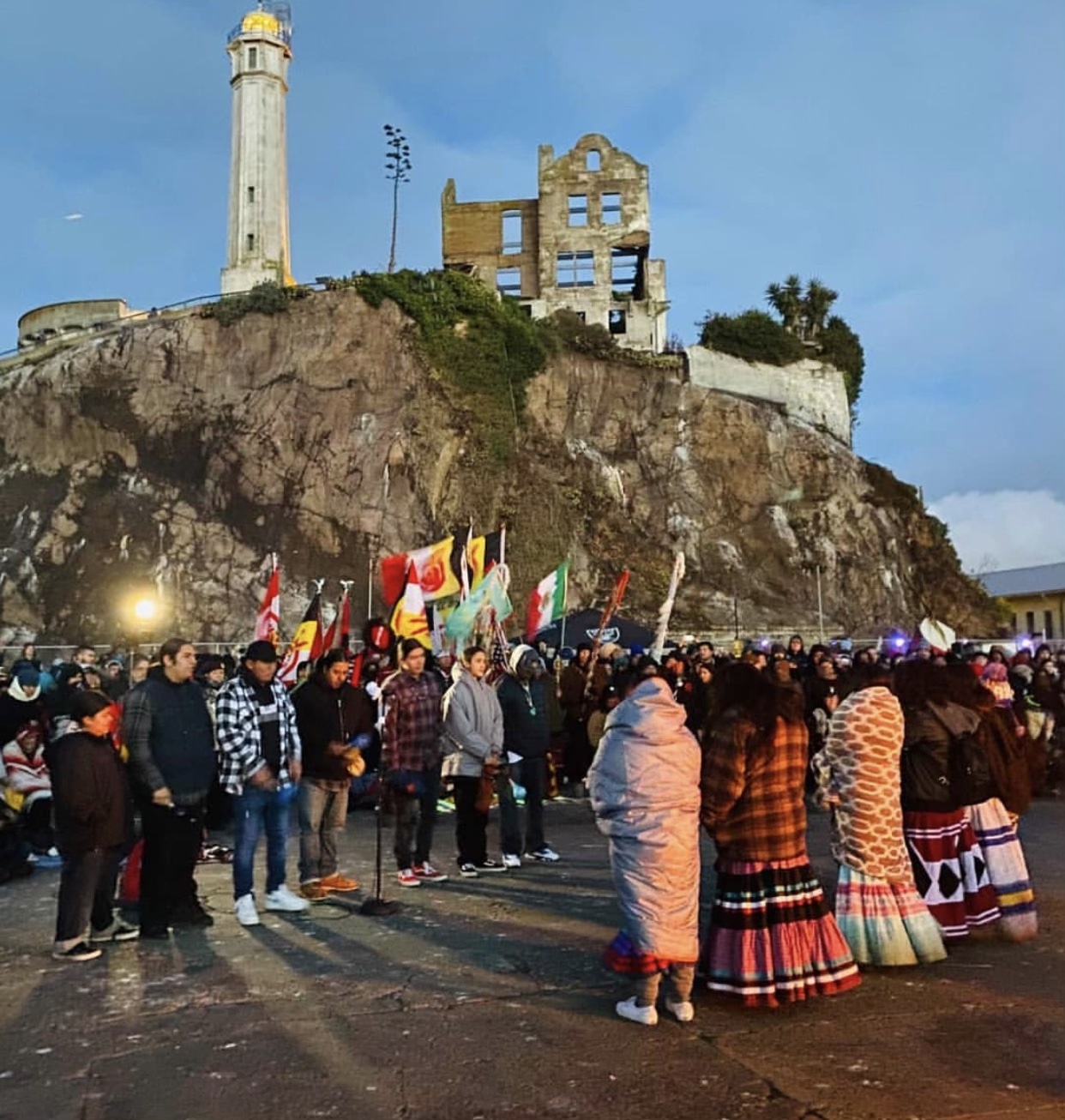
By Emily Clarke
–
I think of Thanksgiving as another good way to get together as a family. To be humble and share a meal. But as a California Native American, Thanksgiving is being thankful for our elders, for passing down traditional culture and ways of life from generation to generation and overall, thanking our Creator.
Rhianna Salgado, 15 years old (Payómkawichum (Soboba Luiseño)/Qáwi’a’ (Cahuilla)/Poarch Creek Nation)
–
Thanksgiving has mixed meanings for me.
As a child I was not raised knowing my cultural identity so I have many happy memories of Thanksgiving, oblivious to the truth behind the holiday. When I got older and discovered my heritage, it took on a new meaning. I’ve made sure to teach my loved ones the true history so they aren’t ignorant to it like I was. And while we still gather, our tradition is to celebrate being together as a family, and to honor our ancestors, culture, and show appreciation for all the good in the world.
Alisa Staples (Amah Mutsun Ohlone)
–
For me, Thanksgiving is all about spending time with family and reflecting on the many things I am grateful for. I enjoy deep frying a turkey, eating with my family, and watching the Cowboys blow a second half lead. I don’t like when people try to politicize the Thanksgiving holiday. I don’t think most Americans even think about the pilgrims and all that stuff. I think there’s a lot of virtue signaling behind a lot of the anti-Thanksgiving memes that go around this time of year.
Gerald Clarke (Cahuilla)
–
Throughout my educational journey as a Gabrieleno student, I have been bombarded with inaccurate histories and narratives of “Thanksgiving” told by the western perspective. The Wampanoag peoples are the only ones who should be telling the histories that their people survived and endured during this so-called national holiday. My perspective and knowledge always varied from my peers and teachers, but I never let that influence my stance on the literal genocide and trauma that occurred and still remains prevalent today in the Wampanoag community. This past summer I had the privilege to move to Boston, Massachusetts as a California Native Pre-Med Student from Southern California and research and intern at Harvard Medical School on Massachusett territory. It was this travel experience that I was exposed first hand to the accurate and true history directly from Wampanoag elders and tribal members. Native histories deserve to be told by Native voices and educational systems and institutions must amend their curriculum.
Desirae Barragan (Gabrieleño)
–
As a California Native born and raised on my reservation, Thanksgiving has always been an extra excuse for my close relatives, 1st, 2nd, and 3rd cousins to gather and be thankful. However, the history of this holiday is definitely a colonial construct that was erected as an educational weapon to support a one sided narrative. Narrative being, the Natives were okay with colonists taking the land. That part always stings, but my family just loves eating, gathering, and being thankful for our survival.
Roberta Leash (Cahuilla)
–
I’ve heard many versions of how Thanksgiving went down, from feast of brotherhood to one of bloodshed. I wasn’t there, but I suspect the latter. As a Native, I celebrate Thanksgiving, but not in the historical sense. Instead I chose simply to be Thankful. Nothing wrong with gratitude. This Thanksgiving my kids and grandkids will gather and there will be love and laughter in the gravy. Nothing tastes better.
Gordon Lee Johnson (Cahuilla/Cupeno)
–
As a California Native, Thanksgiving is a celebration of family and food. The reason and origins of Thanksgiving are rarely discussed, and time is spent being together and eating together. Coming together with food at the center is something that my family values. It is also a time to reflect on the year, on the heartache and good fortune.
Whitney Liera Espinoza (Cahuilla Band of Indians)
–
Thanksgiving to me and my family has always been a way of celebrating each other. We’ve never used the colonized way of Thanksgiving to celebrate. Instead we turn inwards and focus on the people in front of us. We use it as a day to recognize all the things we’re thankful for in our lives, the people we have left, our health, our homes, and our children. We feast together and we enjoy each other’s company.
Linda Diaz (Morongo band of Mission Indians)
–
I do celebrate Thanksgiving. My family always has. There are a lot of Indians that hate Thanksgiving because of the pilgrims. However we were not affected by the pilgrims or the colonial settlers. We were affected by the missions and then by manifest destiny. I like deviled eggs most of all.
Anonymous (Cahuilla)
–
Thinking back, it’s always been a holiday that others celebrate. (Non- Indian holiday). I remember we celebrated, here in Cahuilla with my grandparents, mom, dad and brothers and we had a nice feast, complete with beans, tortillas, wewish and the turkey. It was simple prayer then eat and togetherness. I remember as a child going to school and making the pilgrim hat or the “feather Indian headdress” I always chose to be the Indian. Awkward, but it is what was seen as a fun activity for small children in elementary school, (Cultural Misappropriation at its best, and a sign of the times). Fast forward now we hear of the thanksgiving massacre and now more of the dark past of true history is now being shared, and we see many coming together and offering prayer to our ancestors and acknowledging all the extreme cruelness inflicted on the People of this country, known as the United States. However, when a younger member of my family was asked if they celebrate and why? My suggested answer was, “Because we can”. If they can, we can. We have earned it. As for my family it is still known as a non Indian holiday but we have managed to come together and pray to our ancestors…
I told my daughter about this article and I said, “we know the day is noted as “Thanksgiving”, we are not thankful just one day a year, we are thankful everyday for our lives and all things, that for us will never be changed. However our People come together may it be a beautiful day of prayer and remembrance and the truthfulness of the suffering of our ancestors never be hidden or forgotten. Going forward, our Prayers for the Creator Great Spirit to heal us all…
Rose Ann Hamilton (Cahuilla)
–
Thanksgiving to me means coming together with loved ones and eating my grandma’s homemade beans and tortillas! We don’t celebrate nor care about the stinky Pilgrims from 400 years ago…
Clyde Schlater Jr (La Jolla Band of Luiseño Indians)
–
As a Maidu woman, Thanksgiving isn’t a major deal to me. My whole family doesn’t make the effort to get together on this day and I think that says a lot. It’s honestly just a day to get together with a small part of my family and eat. I’m a teacher to Tk-2nd graders so I make it a point to shed light on the true history behind Thanksgiving not only to students but also to adults who are misinformed. I make it a point to let others know that we are not a people of the past. Some may see it as a contradiction to partake in festivities on this day and that’s their opinion. But I have disconnected from the false narrative that we were taught in schools and I’ve taken control of how I want to participate on this day.
Lindsay Oaxaca-Flores (Estom Yumeka Maidu Tribe of the Enterprise Rancheria)
–
I have always celebrated Thanksgiving with my family, California Native and non-Native. It wasn’t until high school I began to question the practice and until recently I now believe that centering the Wampanoag people, their oral histories, and their tradition is what’s most important. I stand in solidarity with their activism around a Day of Mourning and also the belief that gratitude was instilled in our everyday lives for Native people and also some of their beliefs that we can still celebrate our gratitude over food, but with a respect for the land and histories of what our ancestors had to endure for something like Thanksgiving to happen.
Carolann (Maara’yam & Kumeyaay descent)
–
When I think of Thanksgiving and reflect on the last two years, it hits different because even though the first Thanksgiving didn’t remain peaceful, we can still learn from our past and build a better future with appreciation and understanding of what it means to be Native in 2022. We are a resilient people and I like to believe that our ancestors wouldn’t want us to be bitter about the festivities taking place this week. However, it is a reminder to always be thankful everyday, and all year. With that being said, I’ll be with family and feel blessed to have made it another year.
Rosy (Cahuilla/Serrano)
–
As a child growing up in Catholic school I was given their narrative of “Thanksgiving” of how we were giving thanks to each other for the teachings shared amongst men. My family made meals, ate together and just used it as a day to actually spend a few hours out of our busy lives together, but the whole idea of it as a holiday was never a topic of conversation. As a parent I’ll be teaching my sons why I don’t see this day as a holiday, but instead as a day to remember that we gave them an inch and they took a whole continent. They continue to try to wipe us out in a handful of ways yet we’re still here. As my boys grow further into understanding we won’t be celebrating society’s version but instead we’ll be celebrating our resilience as Native people.
Ceclia (Kupeño-Serrano-Yaqui)
–
Growing up it wasn’t really “Thanksgiving” it was just a day to get together, eat, visit and watch sports. Society’s idea of thanksgiving and my personal view are the complete opposite, while I’m thankful for everything I have, it’s just another Thursday.
Chris (Cahuilla-Luiseño)
–
I know some Native Americans don’t celebrate Thanksgiving; they mourn on that day. I understand and respect that completely. For my family and I we use this day to cook, eat and enjoy each other’s company. My tribe just had a potluck for thanksgiving on the 19 th. We started with a blessing of the food by an elder before we all ate together. We had Bird singing and storytelling in our Cahuilla language. We also had shinny game learning and gourd (rattle) making for our youth or whoever wanted to participate. It was a reminder for me that our people are still here and thriving. I love when my tribe gets together, I get to see my loved ones and the home cooked food is the best!
April Morreo Galvan (Torres Martinez Desert Cahuilla)
–
I don’t practice thanksgiving as a traditional “American” I practice as a descendant of my people that survived. I am thankful to my family and my community for surviving and supporting each other.
Sheila Saul (Santa Rosa band of Cahuilla Indians)
–
One of the things we love most about our people is that we gather. In times of gladness and in times of trials we come together and we eat, we laugh, share and create memories. So Thanksgiving for us is just another opportunity to spend time with loved ones and enjoy a meal. We are appreciative to be here and thankful for our time together.
Richard & Nicole Salgado (Cahuilla/Morongo)
–
I know my history and it ain’t right, but I want to celebrate and be thankful for my family and all that we went through.
Abby, 18 years old (Cahuilla/Serrano)
–
As a California Native, Thanksgiving is just another day to me. My family always acknowledged it as a designated day to spend time with family and an extra excuse to eat some really good home cooked meals. We never acknowledged its colonial meaning, because we knew better. Personally, I take extra time on Thanksgiving day to smudge and pray to my ancestors, thanking them for being so strong and for making it possible for me to be here and vowing to decolonize in every way I can so that I can.
Summer Wilson (Tongva, reconnecting)
–
Turkey Day in our family means gathering to feast then rest, but not to celebrate. Delicious meals are made by loving hands, and lots of stories are told, but the unspoken truth of the “so-called” holiday is ever present for us. We’re grateful every day for our ancestors that survived government-funded genocide. In turn, many members of our family don’t observe the day at all. They choose to work so others can be with their families or dedicate time in service providing meals for the unhoused relatives in their community.
Tabitha Smith (North Fork Mono)
–
As a California Native, Thanksgiving means gathering and appreciating how far we’ve come as a nation. Throughout the years we’ve faced many hardships. Through traditions we’ve gained an even stronger mutual respect for one another. Getting together with family and friends we’re able to speak upon history, and realize that although some things may still be the same, many things have changed; and that feeling is remarkable. Thanksgiving is an appreciation for all those in your family. The distances they’ve all traveled and how far we’ve come throughout the centuries. To see how we were once treated and controlled, compared to how we live life now, is a blessing in itself. Thanksgiving is a holiday that may be celebrated in numerous ways, but overall I’m grateful for this time spent together.
Raya Rain Salgado, 13 years old (Payómkawichum (Soboba Luiseño)/Qáwi’a’ (Cahuilla)/Poarch Creek Nation)

–
Thanksgiving has always been one of the touchy topics and holidays, but there’s many ways to celebrate it and as you get older you make your own traditions, it’s more about being thankful for the friends and family you have in your life and celebrating that with them. It’s always been a time to get together with your loved ones and eat, laugh and play games. We never celebrated the meaning yet created what we wanted the holiday to be about and continued with that tradition. My kids now even have their own Friendsgiving and celebrate each other and their wins over the year and make their favorite dishes no matter if they’re traditional or not, it’s what you like to eat, and then who doesn’t like to end the night with the Famous Black Friday shopping.
A Native Small Business Owner
–
Thanks-taking is an opportunity for all people to honor and remember the hundreds of thousands of Indigenous lives and resources violently taken in the name of ongoing settler colonialism. We recognize the violent uprooting, removal, and displacement of California’s Indigenous peoples through criminalization and dispossession from our lands, communities, culture, and traditional lifeways while simultaneously celebrating the resilience and goodness that remains in Indigenous communities. This is our commitment to our ancestors and to our future generations.
Morning Star Gali (Ajumawi Band of Pit River Tribe)
–
I come from a Culture that values respect, community, and hospitality. I want to continue to convey these values and honor the resiliency of my ancestors. I’m grateful to the Creator for my blessings of faith, food, & family. My family comes together starting with a blessing to Chamna in gratitude for this day that we can gather together. We ask for His blessing on the food that it may give us strength and nourishment. I enjoy incorporating our traditional foods of wii’wish, hunqwat pie, menyakish cha, and torts to our dinner. Thanksgiving for my family has become a day to be grateful for what we have and appreciate our Culture and who we are as California Natives.
Nesune Madrigal (Cahuilla, Payomkowichum)
–
Thanksgiving, to me, is simply a day that businesses and schools are closed. My family chooses to come together to share a meal. After years of thinking about doing so, this year I’ve finally got the ingredients to make wiiwish (I’ll be adding cranberry purée as an experiment) and mesquite bread to our gathering. The opportunity to celebrate specifically Konkow or Suvoowungay traditions is something that wasn’t afforded to my family while I was younger for many reasons, most notably the influence of the boarding school my great-grandmother attended. As my child, nieces and nephews grow up, it’s important that they have a grounded connection to their Native culture, history, and community as a complement to their other cultural identities.
Andrea Relopez (Soboba, Konkow descendant)
–
As a Cahuilla, Thanksgiving has always meant a time to celebrate family, friends and a time to reflect on the past year and give thanks. It has never been a celebration or recognition of the Pilgrims or about the fairy tale we learned in school.
Celeste Hughes (Cahuilla)
–
As a Southern California Native, Thanksgiving for me represents the attempted genocide of Our Indigenous People across this nation. So personally, I don’t “celebrate” the Holiday or make plans on this day. However, I do have friends and other family members that do. So when asked, I do appreciate the chance to gather together to spend quality time with loved ones, as opportunities such as these don’t come around too often throughout the year. But if I have no plans, you’ll find me cleansing my spirit at a beach, praying to my Creators somewhere on our beautiful coastline with my children; grateful for love and life.
Rhonda Valenzuella (Payómkawichum (Soboba Luiseño)/Qáwi’a’ (Cahuilla)/Poarch Creek Nation)
–
We don’t celebrate Thanksgiving, we celebrate surviving. Funerals are normalized to be sad, but in my family they are the complete opposite, of course we are sad on the inside but we come together to celebrate the loved ones life they had. I see thanksgiving similar to that, it was a very tragic day for our people but now we turned it into a day that we celebrate that our people are still here.
Michelle Norte (Morongo)
–
Throughout my life, non-Natives have always asked how I “feel” about the celebration of Thanksgiving. As a kid going through elementary school, I learned the romanticized story of friendship between the pilgrims and the Indians along with my non-Native classmates. I think even then it felt kind of wrong. Then, as I moved through high school and college and into adulthood, I was able to come to terms with the fact that the first Thanksgiving included violence, bloodshed, and outright bigotry. However, because I am a California Native, the “real story of Thanksgiving,” is not one that is necessarily close to me or my people both geographically and culturally. That is not to say that we don’t feel the pain of a holiday built on the celebration of genocide. Still, to me, Thanksgiving is just a day to eat and practice gratitude. Although the first Thanksgiving didn’t necessarily have a direct effect on California Indians, I think one thing we can all share as Native people is gratitude for one another. This year, I’m deeply grateful for my community. I’m grateful for the fact that I have the platform to showcase these important perspectives and for the people in my community who came together to share their thoughts with me. It is immensely important to me to show our readers that California Natives, although similar in many ways, have diverse perspectives and experiences. Some of us celebrate Thanksgiving, some of us don’t. Some of us choose to acknowledge and mourn the violence of our history on this holiday, others choose to focus on the resilience of Native peoples. There is no right or wrong way. So, the next time someone asks me how I feel about Thanksgiving, I think I’ll direct them to this article. The combination of all of these responses together is a powerful representation of California Native perspectives as Native American Heritage Month comes to an end, and I am deeply thankful for the opportunity to share them. Achama.
Emily Clarke (Cahuilla Band of Indians)


